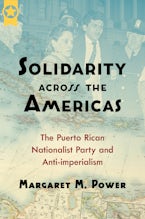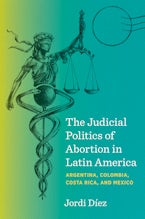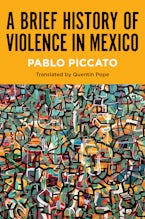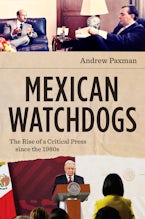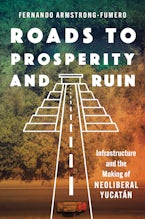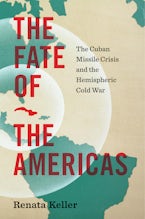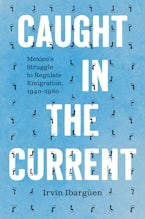“By reconceptualizing Puerto Rico’s geopolitical position from a binational relationship between the island and the United States to a hemispheric coalition, Solidarity Across the Americas offers a fresh understanding of the region. . . . The linkages that Power begins to formulate across Latin America deserve further examination by scholars of social movements and transnational solidarities.”—Los Angeles Review of Books
“Margaret M. Power’s fascinating new book situates the Puerto Rican independence movement in the history of anti-imperialism in Latin America . . . [and] draws on an impressive collection of primary material from archives in Puerto Rico, the United States, Cuba, Mexico, Peru, and Brazil to chart the transnational history of the Puerto Rican independence movement from the 1920s to the 1950s.”—Journal of American History
“An urgently needed book to fill in the gaps in our knowledge and to highlight an important but little-known part of United States imperial history. . . . [Solidarity across the Americas] is an important contribution both to our understanding of that history as well the nature and significance of transnational solidarity campaigns.”—American Historical Review
“Power provides a comprehensive account of the development and significance of the [Puerto Rican Nationalist Party]. . . . [A] first-rate analysis.”—The Americas
“Solidarity across the Americas brings the complicated and fraught history of Puerto Rican nationalism to an English-reading audience in all its nuance and complexity. . . . Power’s book offers a cogent and accessible reminder of the important role that Puerto Rican nationalism played, not just in the archipelago and the United States but across the region.”—Hispanic American Historical Review
“This book is an excellent, engaging read, an important contribution to the fields of Puerto Rican studies, Latin American studies, and Latino studies. For those who relish historical details, the footnotes are a treasure-trove of specifics and insights, showing the craft of a historian planting seeds for future students to follow in her footsteps.”—Latino Studies
“Power’s archival work and interviews document the transnational networks of solidarity that supported Puerto Rican independence, the Nationalist Party, and Puerto Rican political prisoners in the first half of the twentieth century. . . . Power highlights the history of repression against NP members by the US government, including the FBI and the Insular Police from the 1930s on. . . . [This reading] help[s] us make sense of the legacies of US empire and colonialism in Puerto Rico . . . and the ways racial ideologies and formation inform all these topics.”—Latin American Research Review
“This book [is] critically important to scholars of Puerto Rican, Caribbean, Latin American, and American studies as well as historians of social movements. [Power’s] research not only builds on earlier scholarship into political movements, but . . . also challenges some of their findings. . . . While the political nature of nationalism has been debated in earlier scholarship, . . . most of this discussion has been in Spanish. Part of the importance of this book is that it presents some of this earlier research and debates to an English reading audience.”—Centro Journal
“By reintegrating Puerto Rico into a hemispheric context, this book recovers the PNPR as an important piece missing from the history of Latin American anti-imperialist struggles. . . . Highy Recommended.”—CHOICE
“An important new book.”—The Progressive

